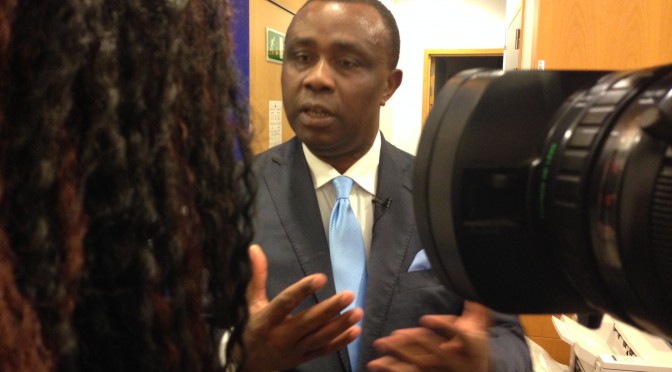Being Abstract of a paper by Collins NWEKE presented at the Diaspora Project Summit, under the Framework of African Union Day 2017, Dortmund Germany, 26/27 May 2017 entitled
REDEFINING THE CONCEPT OF NATIONAL INTERESTS IN GLOBAL MIGRATION MANAGEMENT – THE DIASPORA FACTOR & FACILITATOR ROLE
(A PowerPoint version of the presentation is available through this link: Project Summit Dortmund – EU Migration Fund for Africa)
The saying that time changes and so too must people and systems, runs true with the classic place that the concept of national interest occupies today. That classic definition of national interest departs from the notion that it does not accept the distinction between a morality-based and an interest-based foreign policy. According to its proponents, moral values are simply intangible interests.
In European migration management and at best, the reactive migration policy in place at present, leaders and experts may point out the costs of indulging these values. But if an informed public disagrees, experts cannot deny the legitimacy of public opinion. Numerous polls have shown both in Europe and the United States that the citizens are neither isolationist nor eager to see their leaders serve as the world’s police[i]. Finding a middle course is however proving difficult and complex particularly in light of the election of President Donald Trump. Evidence are beginning to emerge that not only debunks the complexity around finding this needed middle-ground, but also supports the reasoning that national interest of a nation state can be seen from a broader prism of shared priorities regarding relations with the rest of the world. Though broader than strategic interests, national interest is always an integral part thereof. National interest does include values such as human rights and democracy, if the public feels that those values are important to its identity that it is willing to pay a price to promote them. The European Union obviously believes that their interests include certain values, such as protection of lives of young desperate migrants in the Mediterranean Sea, human rights, female circumcision, living in human dignity,… The promotion of these values abroad is to the EU and the vast majority of its citizens of vital rather than secondary importance[ii].
It is important to separate the ideas of survival and progression, because whilst secondary national interests are not necessarily concerned with the practical survival of the state but of its development, they have an openness to be confused and blurred by politics and politicians into a perception of actually being vital national interests. In other words, they are open to political manipulation precisely because they are determined by circumstance rather than necessity. Add domestic politics and the desire (interest) for election and re-election into the mix and the difference between the two become easily, intentionally, and perhaps naturally, blurred.
In the management of international migration especially from the Sub-Sahara Region of Africa, signs are that the EU may be rethinking its concept of national interest. An agreement which came on the back of the Valletta Summit, a high-level meeting between EU and African leaders that took place in Malta in November 2015 is a good pointer. The summit resulted in the establishment of an Emergency Trust Fund for Africa aimed at tackling the root causes of irregular migration, to which the EU pledged 1.8 billion euros ($1.9 billion). The EU has proposed partnerships with four other African countries — Ethiopia, Niger, Nigeria and Senegal — in a bid to cut the flow of migrants arriving in Italy. The EU has stated it will “apply the necessary leverage” in order to secure them. This has been interpreted to be an apparent threat to cut foreign aid to African countries unless they cooperate in reducing irregular migration.
The situation today offers opportunity for African Diaspora led by NIDO Europe to:
- Initiate relevant strategic high-level debates in order that the definition of national interest is officially broader than its current narrow perspective.
- Work with African home governments to carry out needs analysis aimed at identifying sustainable areas where EU Migration funds should be channeled towards and encourage activation of matching funds.
- Identify international project partners to assess and partly manage the funds for the mutual benefit of Europe, their host and Africa, the homeland.
This intervention will conceptualize and redefine national interest, recommend strategies to activate international project partnership and lay out proactive steps towards assessing the available and related capitals in a crowd-funding environment for impact in Nigeria and Africa along the line of accelerating national development from the Diaspora vantage point.
Collins NWEKE
Global Affairs Analyst & Councillor Ostend City Council Belgium
——————————————————————————————–
[i] George Buchan, The Bruges Group, 2012
[ii] Carl Wallin, Swedish National Defense College, 2014
Discover more from A Fairer Europe
Subscribe to get the latest posts sent to your email.
